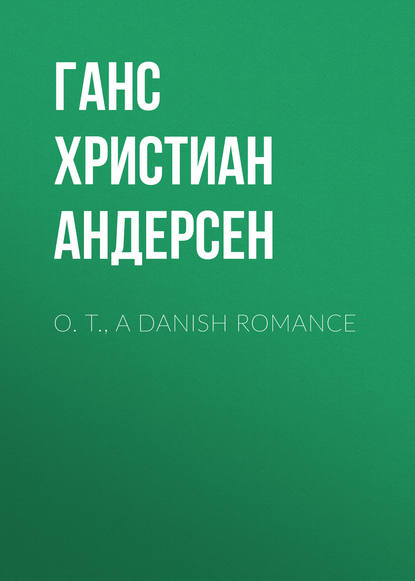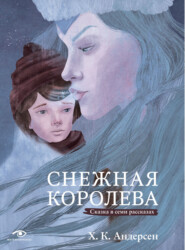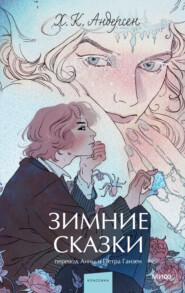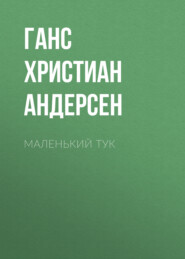По всем вопросам обращайтесь на: info@litportal.ru
(©) 2003-2024.
✖
O. T., A Danish Romance
Настройки чтения
Размер шрифта
Высота строк
Поля
“Half a mile?” replied a voice from the other side of the cart, and Otto remarked a man who, wrapped in a large gray riding-cloak, had stretched himself out among the heather. “It is not a quarter of a mile to the highway if people know how to direct their course properly!”
The pronunciation of the man was somewhat foreign, but pure, and free from the gibberish which the others employed in their speech. The voice seemed familiar to Otto, his ear weighed each syllable, and his blood ran quicker through his veins: “It is the German Heinrich, the evil angel of my life!” he felt, and wrapt himself closer in his mantle, so that his countenance was concealed.
A half-grown lad came forward and offered himself as a guide.
“But the lad must have two marks!” said the woman.
Otto nodded assent, and glanced once more toward the man in whom he believed he recognized the German Heinrich; the man had again carelessly stretched himself among the heath, and did not seem inclined to enter into farther discourse.
The woman desired the payment in advance, and received it. The boy led the horses toward one side; at the moment the fire flare up between the turf-sods, a great dog, with a loose cord about his neck, sprang forward and ran barking after the carriage, which now travelled on over the heath in the gloomy night.
CHAPTER XXI
“Poetry does not always express sorrow; the rainbow can also arch across a cloudless blue firmament.”—JEAN PAUL.
We again find ourselves in Copenhagen, where we meet with Otto, and may every day expect Wilhelm, Miss Sophie, and the excellent mamma; they would only stay a few weeks. To learn tidings of their arrival, Otto determined to pay a visit where they were expected; we know the house, we were present at the Christmas festival: it was here that Otto received his noble pedigree.
We will now become somewhat better acquainted with the family. The husband had a good head, as people sat, had an excellent wine-cellar, and was, as one of the friends maintained, a good l’hombre player. But the soul of the house, the animating genius, which drew into this circle all that possessed life and youth, was the wife. Beautiful one could by no means call her, but, enchanted by her natural loveliness, her mind, and her unaffectedness, you forgot this in a few moments. A rare facility in appreciating the comic of every-day life, and a good-humored originality in its representation, always afforded her rich material for conversation. It was as if Nature, in a moment of thoughtlessness, had formed an insipid countenance, but immediately afterward strove to make good her fault by breathing into it a soul, which, even through pale blue eyes, pale cheeks, and ordinary features, could make her beauty felt.
When Otto entered the room he heard music. He listened: it must be either Weyse or Gerson.
“It is the Professor Weyse,” said the servant, and Otto opened the door softly, without knocking.
The astral-lamp burnt upon the table; upon the sofa sat two young ladies. The mistress of the house nodded Otto a friendly welcome, but then smiling laid her finger on her lips, as a sign of silence, and pointed to a chair, on which he seated himself, and listened to the soft tones, which, like spirits, floated from the piano at which the musician sat. It was as if the slumbering thoughts and feelings of the soul, which in every breast find a response, even among the most opposite nations, had found a voice and language. The fantasies died away in a soft, spiritual piano. Thus lightly has Raphael breathed the Madonna di Foligno upon the clouds; she rests there as a soap-bubble rests upon velvet. That dying away of the tomes resembled the thoughts of the lover when his eye closes, and the living dream of his heart imperceptibly merges and vanishes in sleep. Reality is over.
Here also the tones ceased.
“Der Bettelvogt von Ninive
Zog hinab zum Genfersee,
Hm, hm!”[14 - Author’s Note: An old popular German song.]
commenced the musician once more, with an originality and spirit which influenced the whole company. Far too soon did he again break off, after he had enchanted all ears by his own treasures, as well as by the curiosities of the people’s life in the world of sound. Only when he was gone did admiration find words; the fantasies still echoed in every heart.
“His name deserves to be known throughout Europe!” said the gracious lady; “how few people in the world know Weyse and Kuhlau!”
“That is the misfortune of a musician being born in a small country,” said Otto. “His works become only manuscript for friends; his auditory extends only from Skagen to Kiel: there the door is closed.”
“One must console one’s self that everything great and good becomes at length known,” said the cousin of the family, who is known to us by his verses for the Christmas-tree. “The nations will become acquainted with everything splendid in the kingdom of mind, let it bloom in a small or in a large country. Certainly during this time the artist may have died, but then he must receive compensation in another world.”
“I truly believe,” returned the gracious lady, “that he would wish a little in advance here below, where it is so ordered that the immortal must bow himself before the mortal.”
“Certainly,” replied Otto; “the great men of the age are like mountains; they it is which cause the land to be seen from afar, and give it importance, but in themselves they are bare and cold; their heights are never properly known.”
“Very beautiful,” said the lady; “you speak like a Jean Paul.”
At this moment the door opened, and all were surprised by the entrance of Miss Sophie, Wilhelm, and the dear mamma. They were not expected before the following evening. They had travelled the whole day through Zealand.
“We should have been here to dinner,” said Sophie, “but my brother could not get his business finished in Roeskelde; then he had forgotten to order horses, and other little misadventures occurred: six whole hours we remained there. Mamma contracted quite a passion there—she fell fairly in love with a young girl, the pretty Eva.”
“Yes, she is a nice creature!” said the old lady. “Had I not reason, Mr. Thostrup? You and my Wilhelm had already made her interesting to me. She has something so noble, so refined, which one so rarely meets with in the lower class; she deserves to come among educated people.”
“Otto, what shall our hearts say,” exclaimed Wilhelm, “when my good mother is thus affected?”
They assembled round the tea-table. Wilhelm addressed Otto with the confidential “thou” which Otto himself had requested.
“We will drink together in tea and renew our brotherhood.”
Otto smiled, but with such a strangely melancholy air, and spoke not a word.
“He’s thinking about the old grandfather,” thought Wilhelm, and laid his hand upon his friend’s shoulder. “The Kammerjunker and his ladies greet thee!” said he. “I believe the Mamsell would willingly lay thee in her own work-box, were that to be done.”
Otto remained quiet, but in his soul there was a strange commotion. It would be a difficult thing to explain this motive, which belonged to his peculiarity of mind; it entered among the mysteries of the soul. The multitude call it in individuals singularity, the psychologist finds a deeper meaning in it, which the understanding is unable to fathom. We have examples of men, whose strength of mind and body were well known, feeling faint at the scent of a rose; others have been thrown into a convulsive state by touching gray paper. This cannot be explained; it is one of the riddles of Nature. A similar relaxing sensation Otto experienced when he, for the first time, heard himself addressed as “thou” by Wilhelm. It seemed to him as though the spiritual band which encircled them loosened itself, and Wilhelm became a stranger. It was impossible for Otto to return the “thou,” yet, at the same time, he felt the injustice of his behavior and the singularity, and wished to struggle against it; he mastered himself, attained a kind of eloquence, but no “thou” would pass his lips.
“To thy health, Otto,” said Wilhelm, and pushed his cup against Otto’s.
“Health!” said Otto, with a smile.
“It is true,” began the cousin, “I promised you the other day to bring my advertisements with me; the first volume is closed.” And he drew from his pocket a book in which a collection of the most original Address-Gazette advertisements, such as one sees daily, was pasted.
“I have one for you,” said the lady; “I found it a little time since. ‘A woman wishes for a little child to bottle.’ Is not that capital?”
“Here is also a good one,” said Wilhelm, who had turned over the leaves of the book: “‘A boy of the Mosaic belief may be apprenticed to a cabinet-maker, but he need not apply unless he will eat everything that happens to be in the house.’ That is truly a hard condition for the poor lad.”
“Almost every day,” said the cousin, “one may read, ‘For the play of to-day or to-morrow is a good place to be had in the third story in the Christenbernikov Street.’ The place is a considerable distance from the theatre.”
“Theatre!” exclaimed the master of the house, who now entered to take his place at the tea-table, “one can soon hear who has that word in his mouth; now is he again at the theatre! The man can speak of nothing else. There ought, ready, to be a fine imposed, which he should pay each time he pronounces the word theatre. I would only make it a fine of two skillings, and yet I dare promise that before a month was over he would be found to pay in fines his whole pocket-money, and his coat and boots besides. It is a real mania with the man! I know no one among my young friends,” added he, with an ironical smile at Wilhelm,—“no, not one, who has such a hobby-horse as our good cousin.”
“Here thou art unjust to him!” interrupted his wife; “do not place a fine upon him, else I will place thee in a vaudeville! Thy life is in politics; our cousin’s in theatrical life; Wilhelm’s in thorough-bass; and Mr. Thostrup’s in learned subjects. Each of you is thus a little nail in the different world-wheels; whoever despises others shows that he considers his wheel the first, or imagines that the world is a wheelbarrow, which goes upon one wheel! No, it is a more complicated machine.”
Later in the evening, when the company broke up, Otto and Wilhelm went together.
“I do not think,” said Wilhelm, “that thou hast yet said thou to me. Is it not agreeable to thee?”
“It was my own wish, my own request,” replied Otto. “I have not remarked what expressions I have employed.” He remained silent. Wilhelm himself seemed occupied with unusual thoughts, when he suddenly exclaimed: “Life is, after all, a gift of blessings! One should never make one’s self sorrows which do not really exist! ‘Carpe diem,’ said old Horace.”
“That will we!” replied Otto; “but now we must first think of our examination.”
They pressed each other’s hands and parted.
“But I have heard no thou!” said Wilhelm to himself “He is an oddity, and yet I love him! In this consists, perhaps, my own originality.”
He entered his room, where the hostess had been cleaning, and had arranged the books and papers in the nicest order. Wilhelm truly called it disorder; the papers in confusion and the books in a row. The lamp even had a new place; and this was called order!
Smiling, he seated himself at the piano; it was so long since they had said “Good day” to each other! He ran over the keys several times, then lost himself in fantasies. “That is lovely!” he exclaimed. “But it is not my property! What does it belong to? It melts into my own feelings!” He played it again. It was a thema out of “Tancredi,” therefore from Rossini, even the very composer whom our musical friends most looked down upon; how could he then guess who had created those tones which now spoke to his heart? His whole being he felt penetrated by a happiness, a love of life, the cause of which he knew not. He thought of Otto with a warmth which the latter’s strange behavior did not deserve. All beloved beings floated so sweetly before his mind. This was one of those moments which all good people know; one feels one’s self a member of the great chain of love which binds creation together.
So long as the rose-bud remains folded together it seems to be without fragrance; yet only one morning is required, and the fine breath streams from the crimson mouth. It is only one moment; it is the commencement of a new existence, which already has lain long concealed in the bud: but one does not see the magic wand which works the change. This spiritual contrast, perhaps, took place in the past hour; perhaps the last evening rays which fell upon the leaves concealed this power! The roses of the garden must open; those of the heart follow the same laws. Was this love? Love is, as poets say, a pain; it resembles the disease of the mussel, through which pearls are formed. But Wilhelm was not sick; he felt himself particularly full of strength and enjoyment of life. The poet’s simile of the mussel and the pearl sounds well, but it is false. Most poets are not very learned in natural history; and, therefore, they are guilty of many errors with regard to it. The pearl is formed on the mussel not through disease; when an enemy attacks her she sends forth drops in her defense, and these change into pearls. It is thus strength, and not weakness, which creates the beautiful. It would be unjust to call love a pain, a sickness; it is an energy of life which God has planted in the human breast; it fills our whole being like the fragrance which fills each leaf of the rose, and then reveals itself among the struggles of life as a pearl of worth.
These were Wilhelm’s thoughts; and yet it was not perfectly clear to him that he loved with his whole soul, as one can only love once.

















